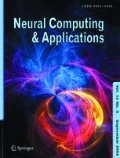Abstract
To solve the problem of regional water system evaluation, this paper proposes a system efficiency evaluation method based on the game cross-efficiency model and conducts an empirical analysis. First, autopoiesis is introduced as the theoretical basis. The characteristics of the authigenic system are combined with a regional water system, and the connotation and characteristics of the regional water system are defined. Second, based on the competitive relationship between regional water systems, the existing game crossover efficiency model is improved. A crossover efficiency model of other games is proposed to evaluate the efficiency of regional water systems. Then, the Pearl River Delta urban agglomeration is selected as the research object. The effects of four systematic evaluation methods based on the DEA method are compared horizontally to find the optimal system efficiency evaluation method. Finally, the characteristics of the regional water system in the Pearl River Delta are systematically analysed through the evaluation results, and the present situation of the regional water system is fully explained.






Similar content being viewed by others
References
Lobbrecht AH (1997) Dynamic water-system control - design and operation of regional water-resources systems
Zhang Xiaoyu Xu, Zhouyangfan DL, Zhirong Z (2019) Simulation and regulation of the evolution of Alashan’s “three generations” water use system based on system dynamics. Arid Land Resour Environ 33(08):107–113
Yuebin W, Changqing L, Yuan Li, Xiaohui W (2018) Analysis on the evolution of water system structure characteristics based on the multi-watershed ecological network model. China Environ Sci 38(02):755–765
Wang Yousen Xu, Hao BY (2016) Industrial water system efficiency evaluation: two-stage DEA considering the characteristics of pollutants that can be treated. Chinese Manag Sci 24(03):169–176
Yanhu H, Biao L, Xiaohong C, Kairong L, Xiaoqing W (2014) Analysis of coordination degree of water system of Dongjiang river basin under changing environment. People’s Yangtze River 45(15):27–31
Wenjuan C, Zhongmin L, Xiaojing F (2011) Research on the impact of water transfer projects on the coordination of regional industrial water systems. South-to-North Water Transf Water Conserv Sci Technol 9(05):19–22
Sheping L, Jiancang X, Mingcong H, Hongqi C (2004) Analysis of coordination degree of regional industrial water system. J Hydraul Eng 05:14–21
Jing C, Kai Y, Yong Z, Jun Z (2008) Application of grey coordination degree model in industrial water system analysis. Resour Environ Yangtze Basin 05:688–692
Varela FG, Maturana HR, Uribe R (1974) Autopoiesis: the organization of living systems, its characterization and a model. Curr Mod Biol 5(4):187–196
Lei Z (2020) The game evolution, efficiency evaluation and influencing factors of library discipline and business system. Libr Sci Res 13:9–17
Ren T, Li S, Zhou Z, Li S, Xiao H (2021) Research on the system efficiency evaluation of regional sustainable development based on satisfaction BLP-DEA [J/OL]. China Manag Sci. https://doi.org/10.16381/j.cnki.issn1003-207x.2020.0080
He B (2014) Applied research on logistics system efficiency evaluation based on fuzzy DEA model. Appl Mech Mater 3468:6189–6191
Linlin Z, Yong Z, Yuliang Z et al (2019) Data envelopment analysis for sustainability evaluation in China: tackling the economic, environmental, and social dimensions. Eur J Oper Res 275(3):1083–1095
Liang L, Wu J, Cook WD et al (2008) Alternative secondary goals in DEA cross-efficiency evaluation. Int J Prod Econ 113(2):1025–1030
Liang L, Jie W, Cook WD et al (2008) The DEA game cross-efficiency model and its nash equilibrium. Oper Res 56(5):1278–1288
Salmasnia A, Rahimi A, Abdzadeh B (2019) An integration of NSGA-II and DEA for economic–statistical design of T2-Hotelling control chart with double warning lines. Neural Comput & Applic 31:1173–1194
Hatami-Marbini A, Saati S (2020) Measuring performance with common weights: network DEA. Neural Comput & Applic 32:3599–3617
Liu J, Xu Q, Chen H et al (2019) Group decision making with interval fuzzy preference relations based on DEA and stochastic simulation. Neural Comput Appli 31:3095–3106
Shengzong Z, Zaiwu G (2017) DEA game cross-efficiency method considering the dynamic changes of decision-making unit competition and cooperation. Op Res Manag 26(05):21-27+36
Zhou Q, Xu Z, Yen Neil Y (2019) User sentiment analysis based on social network information and its application in consumer reconstruction intention. Comput Hum Behav 100:177–183
Lin Li, Haijun H, Shouyang W (2016) Research on the evaluation of academic journals based on DEA/AR game cross-efficiency method. J Manag Sci 19(04):118–126
Kuzlu M, Fair C, Guler O (2021) Role of Artificial Intelligence in the Internet of Things (IoT) cybersecurity. Discov Internet Things 1:7
Liu W, Wang YM, Lv S (2017) An aggressive game cross-efficiency evaluation in data envelopment analysis. Ann Oper Res 259(1–2):241–258
Kawamoto H (2016) Third generation system theory: autogenic system theory. Central Compilation and Translation Press, Beijing
Ke W (2018) System comprehensive evaluation and data envelopment analysis method: modeling and application. Science Press, Beijing
Author information
Authors and Affiliations
Corresponding author
Ethics declarations
Conflict of interests
The author(s) declare no potential conflicts of interest with respect to the research, authorship, and/or publication of this article.
Additional information
Publisher's Note
Springer Nature remains neutral with regard to jurisdictional claims in published maps and institutional affiliations.
Rights and permissions
About this article
Cite this article
Zhang, W., Yu, H., Ren, L. et al. Efficiency evaluation research of a regional water system based on a game cross-efficiency model. Neural Comput & Applic 34, 9441–9454 (2022). https://doi.org/10.1007/s00521-021-06381-0
Received:
Accepted:
Published:
Issue Date:
DOI: https://doi.org/10.1007/s00521-021-06381-0




